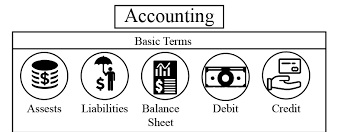 Bookkeeping of Restaurants & Hotels
Bookkeeping of Restaurants & Hotels
Certainly, here are some effective methods for maintaining proper Bookkeeping of Restaurants & Hotels:
1. Opt for the Appropriate Accounting System:
Selecting the right accounting software is crucial. Opt for a program tailored to the hospitality sector that caters to your business’s unique requirements. Notable choices encompass QuickBooks, Xero, and Sage 50.
2. Integrate with POS System:
Your Point of Sale (POS) system serves as the core of your operations. Integrating it with your accounting practices software enables automated tracking of sales and expenses. This streamlines processes, enhances accuracy, and conserves time and effort.
3. Establish Bookkeeping Templates:
After settling on an accounting system, create standardized bookkeeping templates. This systematic approach aids in maintaining uniformity and organization while recording revenue and expenses.
4. Regularly Input Transactions:
Avoid the temptation to postpone transaction entries until month-end. Timely input reduces the likelihood of errors and discrepancies, promoting accuracy throughout the records.
5. Regular Reconciliation of Accounts:
Consistently reconcile your bank statements with your accounting practices records. This practice helps identify disparities and errors, ensuring the accuracy and reliability of your financial data.
6. Engage a Professional Bookkeeper or Accountant:
If time constraints or expe rtise gaps hinder self-bookkeeping, enlisting a professional bookkeeper or accountant becomes a valuable option. Particularly useful for intricate businesses or for managing tax-related obligations.
For further details access our website: https://www.mca.gov.in/
Additional Tips for Effective Bookkeeping in the Restaurant and Hotel Industry:
1. Prudent Inventory Tracking:
For eateries, meticulous inventory management is pivotal due to the significance of food costs. Implement robust tracking mechanisms to monitor inventory levels accurately.
2. Vigilant Labor Cost Monitoring:
Given that labor constitutes a substantial outlay in restaurants and hotels, diligent monitoring of labor expenses is essential. Precise tracking of these costs and ensuring accurate employee compensation are vital aspects.
3. Trace Marketing and Advertising Expenses:
Though challenging, diligently tracking marketing and advertising expenses is imperative. Doing so provides insights into the effectiveness of various initiatives and aids in informed decision-making.

4. Structured Customer Payment Tracking:
Implement a system for monitoring customer payments methodically. This minimizes the occurrence of delayed payments and assists in keeping tabs on outstanding accounts.
5. Regulatory Compliance:
The hospitality sector is subject to a multitude of regulations and legal stipulations. Ensuring compliance with these regulations is of utmost importance to maintain the integrity of your business operations.
6. Accounting Practices:
Incorporating these practices will contribute to the efficiency, accuracy, and overall financial health of your restaurant or hotel business.
For further details access our website: https://vibrantfinserv.com
